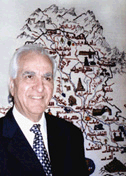School Tourism
What is meant by "School Tourism" and is this a new addition to current tourism terminology?
School Tourism might be defined as a type of tourist activity that is organized by a school, academic centre, college or university. These might include picnics, excursions, tours, field trips, conferences, sports and other activities outside of the classroom.
Anyone reminiscing about his/her heady years as a student will no doubt recall the school trip. Such trips seem etched in our memories, more so than the routine study of the classroom, dorm or home. Such trips were not only novel, they were intellectually as well as physically liberating experiences for us.
Without making sweeping generalizations, the nature of school trips was to have fun, an opportunity to socialize with one’s peers through involvement in specific activities revolving around sport, entertainment, games and leisure in the great outdoors.
"Anyone reminiscing about his/her heady years as a student will no doubt recall the school trip. Such trips seem etched in our memories, more so than the routine
study of the classroom, dorm or home. Such trips were not only novel, they were intellectually as well as physically liberating experiences for us."
But were such trips a planned part of the study programme as a whole or were they organized by the school itself, related perhaps to some special event or occasion? Or were they organized spontaneously? If planned, how? And what was hoped to be achieved from having these trips? Perhaps we should all take time out to think about how these trips might ultimately have affected us, if at all; and if we assume that they were good for us, physically and intellectually, why weren’t they more frequent and varied? I remember business trips that often led me to visit factories in Europe. One such visit was to a Mercedes-Benz factory in Stuttgart, Germany. The company actually organized a tour enabling visitors – who happened to be purchasers of the car - to view first-hand the manufacturing of the product they were buying. It was a trip that was also an industrial education, and it taught me, in my own company, the importance of inviting schools to see what we do.
In this issue of Islamic Tourism Magazine, you will find an illustrated report about the views and impressions of a group of students from The University of Wales, United Kingdom, who visited Egypt recently.
It is an essay that teaches us a lot about the relevance
of School Tourism, and is, moreover, an articulate argument for the qualitative and quantitative expansion of such a sector. School Tourism should surely be an essential part of any fully developed contemporary educational curriculum?
Examples of School Tourism might include excursions and visits by pupils and students to production factories to see how items like fabric, shoes, toys, utensils, furniture, and so on, are made; to food factories (including dairy farms, tinned food production lines, bakeries, etc; to farms and orchards during harvesting seasons (pupils could participate in gathering and harvesting); markets, centres and exhibitions; museums, libraries, ruins and places of historical interest; leisure centres, parks and areas containing modern urban landmarks; mosques, shrines and religious landmarks; to charitable foundations.
"In this issue of Islamic Tourism Magazine, you will find an illustrated report about the views and impressions of a group of students from The University of Wales, United Kingdom, who visited Egypt recently."
Exchange visits between schools can also be organized, with essential secondvisits and follow-ups.
School Tourism creates an organic relationship between
academic centres of learning and the real world, including
the industrial world, which many pupils will eventually enter. Companies and organizations should be actively involved in promoting the holistic education of the next generation of employees and employers. Such initiatives ought also to be as inter-active as possible, making use of the latest technology in communication. In their turn, visitors who are part of the process of School Tourism would be encouraged to reflect upon their particular visits, write and submit brief reports, reflecting their views and personal impressions. This will no doubt increase the awareness of tourism more generally among a new generation. At the end of the day it is a two-way street, and the visitor, however young, is a potential resource for organizations and companies towards future growth and continuity.
Have we included everything? Of course not. As everyone will discover, more has to be done. But how can we begin to crystallize these ideas and start to apply them?
Certainly, education ministries and departments could take the first step by establishing steering committees responsible for exploring the notion of School Tourism and researching the current state of affairs vis-à-vis school or student trips. A sub-committee consisting of school tourism planners could act as coordinators between those responsible for a particular curriculum and the different kind of establishments and organizations in the realms of industry, culture, management, and so on, to incorporate school tourism into a given curriculum for the benefit of both students and companies. Such a committee might approach trade unions, industrial and commercial chambers, to develop programmes, agendas and initiatives.
The media could very well be an essential component
of this both nationally and globally.
Of course, the question of funding and finance is, as ever, paramount. Governments might wish to consider such a proposal as a part of their overall education budgets. Companies could use advertisement revenues. Donations, possibly gift aids, from the wealthy are not uncommon.
Charitable funding organizations might wish to expand their particular remit if they find such a proposal relevant and feasible.
Whatever happens, School Tourism deserves to be considered in the context of an evolving educational imperative that provides young people with the confidence, tools and capabilities to build a better future for our nations and for our common humanity.
God bless
A. S. Shakiry
|

